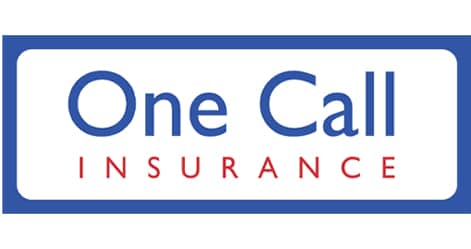
Car Insurance By Manufacturer
Compare Manufacturer Specific Car Insurance
- Compare 120+ insurers
- You could save up to £515*
- Find a great deal today

Compare affordable car insurance from top UK’s leading car insurers including:
Why Compare Car Insurance By Manufacturer At SimplyQuote?
Car insurance premiums often vary depending on the make and model of your car—comparing manufacturer-specific quotes at SimplyQuote.co.uk helps you find the right level of cover without overpaying.
Certain brands are cheaper to insure than others, and some attract higher premiums based on performance, repair costs, or theft risk.
A compact hatchback from Hyundai or Kia will likely fall into a lower insurance group than a high-spec BMW or Audi. Even within the same brand, insurance prices differ between trims, engines, and years. That’s why it pays to be precise when you compare.
At SimplyQuote.co.uk, we’ve partnered with Quotezone to give you access to trusted UK car insurers who factor manufacturer-level data into their pricing. Whether you drive a new Volkswagen, a used Toyota, or a classic Mercedes-Benz, you’ll get quotes that match your vehicle and your driving profile.
Comparing by brand makes the search more relevant—and the results more accurate. It’s fast, free, and tailored to your car.
A–Z Of Car Brands We Cover
From Audi to Volvo, we compare manufacturer-specific car insurance quotes across dozens of makes and models.
Whether you’re insuring a luxury saloon, a hybrid hatchback, or a second-hand runaround, we’ve got you covered.
Each brand links to its own dedicated page, giving you access to tailored guidance, typical insurance groupings, and cost examples for popular models.
Comparing by brand helps you spot differences in premium costs that wouldn’t be obvious otherwise—and lets you fine-tune your search based on the car you drive today.
Here are just some of the manufacturers you’ll find quotes for:
| A-F | G-L | M-R | S-Z |
|---|---|---|---|
| Alfa Romeo | Genesis | Maserati | SEAT |
| Aston Martin | Honda | Mazda | Skoda |
| Audi | Hyundai | McLaren | Smart |
| Bentley | Jaguar | Mercedes-Benz | Subaru |
| BMW | Jeep | MINI | Suzuki |
| Caterham | Kia | Mitsubishi | Tesla |
| Citroën | Lamborghini | Morgan | Toyota |
| Cupra | Land Rover | Nissan | Vauxhall |
| Dacia | Lexus | Peugeot | Volkswagen |
| Ferrari | Renault | Volvo | |
| Fiat | Rolls-Royce | ||
| Ford | Rover |
What Do I Need To Get A Quote?
To get a car insurance quote tailored to your car’s make and model, you’ll need to provide details about your vehicle, your driving history, and how you use the car.
It usually takes less than five minutes if you’ve got the basics to hand. Here’s what you’ll typically be asked for:
- Your car’s registration or make and model – This helps insurers pull in the correct trim, engine size, and insurance group.
- Vehicle usage – Whether it’s for commuting, personal use only, or business-related driving.
- Modifications (if any) – Declare any performance or cosmetic changes—especially common with brands like BMW, Ford, and Audi.
- Annual mileage – An estimate of how many miles you expect to drive each year.
- Your driving history – Including your licence type, any previous claims, points, or disqualifications.
- Where the vehicle is kept – Garage, driveway, or on the street—affects risk and premium level.
You won’t need to upload documents during the quote stage, but the more accurate your answers, the better your results will be. Once you choose a policy, you can usually start your cover the same day.

Why Do I Need Car Manufacturer-Specific Cover?
Because different car brands carry different risks, insurers use the make and model to determine how much you pay—and what level of cover you might need.
That’s why comparing quotes based on your manufacturer helps you avoid under- or over-paying.
Insurers group cars into categories based on repair costs, engine power, safety ratings, and theft appeal. A Nissan Micra and a Mercedes-AMG might both be hatchbacks, but the insurance risk is night and day. Likewise, a high-spec Audi S-Line will usually cost more to insure than a basic SE trim.
Even things like brake assist, auto-parking tech, or adaptive cruise control—more common in some brands than others—can influence premiums or policy conditions.
Manufacturer-specific quotes help ensure:
- You’re not being penalised for features your car doesn’t have
- Modifications are assessed accurately (especially common on performance brands)
- You’re offered extras that actually fit your vehicle, like key cover, alloy protection, or manufacturer servicing clauses
It’s not about brand loyalty—it’s about getting matched with a policy that reflects the true profile of the car you drive.
What Does Manufacturer Car Insurance Include?
Manufacturer car insurance includes the same core protections as any standard policy—like cover for third-party damage, fire, and theft—but also considers brand-specific factors like repair costs, parts availability, and safety features.
This helps shape the price and the extras offered. Typical inclusions across most comprehensive policies:
- Third-party liability – Covers injury or damage caused to other people or their vehicles.
- Fire and theft protection – If your car is stolen or damaged by fire, this part of the policy kicks in.
- Accidental damage cover – Helps pay for repairs to your own vehicle, regardless of fault.
- Windscreen and glass cover – Often standard, but some luxury brands (like Mercedes or Jaguar) may have higher replacement costs.
- Courtesy car – Provided while your vehicle is being repaired by an approved garage.
- Brand-approved repairs – Some insurers guarantee manufacturer-approved parts and garages, especially for newer vehicles.
- Legal expenses and personal injury cover – Included or available as add-ons depending on the policy.
If you’re insuring a high-performance or prestige vehicle, the insurer might insist on certain conditions—like tracker installation or a higher excess—before full cover is offered.
What’s Not Included?
Manufacturer car insurance won’t cover routine wear and tear, undeclared modifications, or claims that arise from using the car outside the terms of your policy.
Despite the tailored nature of this cover, some things are always off the table. Here are typical exclusions you should be aware of:
- Undeclared modifications – If you’ve changed wheels, bodywork, or performance parts without telling your insurer, claims can be rejected.
- Wear and tear – Tyres, brake pads, clutch issues—general deterioration isn’t covered.
- Track days or racing – Unless explicitly declared and agreed, high-performance driving events will void cover.
- Using the car for business or rideshare – If your policy is for personal use only, using the car for work (like Uber or deliveries) can invalidate it.
- Non-approved repairs – Some policies require you to use garages approved by the insurer or manufacturer.
- Driving without a valid licence or insurance – Obvious, but always excluded. The same goes for unlisted drivers using your vehicle.
Each insurer has their own wording, but these are standard across most UK policies. If you’re insuring a prestige or heavily modified vehicle, expect more scrutiny—and don’t assume “fully comp” means everything.
How Much Does Manufacturer Car Insurance Cost?
Manufacturer car insurance can cost anywhere from £300 to over £1,000 per year depending on the make, model, trim, and how you use the vehicle.
Factors like engine size, safety tech, theft risk, and repair costs all play a part in what you’ll pay.
For example, insuring a Toyota Yaris or a Hyundai i10 might cost under £400 per year for a careful driver with a clean licence. These models sit in lower insurance groups thanks to modest performance and low repair costs.
On the other end of the spectrum, a BMW 3 Series M Sport, Audi S3, or Jaguar F-Type could easily exceed £800–£1,200 per year—especially for younger drivers or those in urban postcodes. These models tend to have higher horsepower, more expensive parts, and are more attractive to thieves.
Other factors that impact the cost:
- Age and experience of the driver
- Where the vehicle is kept overnight
- Optional extras like breakdown, key, or legal cover
- Any undeclared or performance modifications
- Annual mileage and policy type (SD&P vs business use)
Comparing quotes side-by-side helps you understand what you’re paying for—and spot policies that offer better value for your car’s specific profile.
How Can I Save Money On This Type Of Cover?
You can often lower the cost of car insurance by comparing quotes, tweaking your cover, and making small changes to how the vehicle is used or stored.
The key is to align your policy with how you actually drive the car—nothing more, nothing less.
Here’s how to keep costs in check:
Choose a lower trim or engine spec
Insurance groups vary widely between trims. A Ford Focus Zetec is usually cheaper to insure than the ST-Line or RS versions.
Add approved security features
Fitting a Thatcham-approved alarm or tracker is especially helpful for high-risk brands like BMW or Audi.
Limit your annual mileage
Lower mileage often means lower premiums—especially if you’re no longer commuting daily.
Increase your voluntary excess
Agreeing to a higher excess can cut the upfront price—but make sure it’s still affordable if you need to claim.
Declare modifications correctly
Cosmetic changes (like alloys or body kits) won’t always hike the premium—but hiding them will.
Other tips include parking off-street if possible, paying annually instead of monthly, and joining an owners’ club—some classic or specialist brands offer discounted group rates.
And of course, comparing quotes is still the simplest way to find the right balance between cost and cover.
How To Compare Quotes For Manufacturer Car Insurance At SimplyQuote.co.uk
Comparing manufacturer car insurance quotes at SimplyQuote.co.uk takes just a few minutes and helps you match the right cover to the car you actually drive.
Whether you own a brand-new Audi or a used Honda, the process is simple and tailored.
Here’s how it works:
Enter your car’s details
Input your registration or select the make, model, trim, and fuel type manually if needed.
Tell us how you use the car
Commuting, social use, or business? Mileage, usage type, and overnight parking all help shape the quote.
Choose the level of cover
Pick between third-party, third-party fire & theft, or fully comprehensive, depending on your needs and vehicle value.
Compare quotes from FCA-regulated insurers
Instantly view and sort policies based on price, features, optional extras, and excess levels.
Pick the one that fits
Once you’ve found the right policy, you can buy online—often with documents delivered immediately and cover starting the same day.
No pushy sales, no phone calls—just tailored quotes for your specific car and driving profile.
Frequently Asked Questions
Usually, yes. German brands like BMW, Audi, and Mercedes-Benz often fall into higher insurance groups due to their performance, value, and repair costs.
Absolutely. Each make and model is placed into an insurance group from 1 to 50. Premium brands and higher-spec trims typically sit in higher groups, meaning higher premiums.
It depends. Some EVs like the Nissan Leaf are relatively cheap to insure, but others—like a Tesla Model 3 or Polestar 2—may cost more due to repair costs and parts availability.
Not directly, but they might affect claim value. Some insurers only pay for generic parts unless you have specific cover that guarantees manufacturer repairs.
Yes, but you’ll need to declare the mods. Any performance, bodywork, or suspension changes must be disclosed—especially common with VW, Ford, or Subaru models.
Often, yes. Higher-value or high-performance models like a Porsche or McLaren may need a specialist policy with agreed valuation and enhanced theft protection.
Yes. A base model Vauxhall Corsa and a VXR version are rated very differently due to power, parts, and accident risk.
Yes, but your premium may change. Switching from a low-risk to a high-risk vehicle mid-term usually triggers a price adjustment—or admin fee, depending on the insurer.










